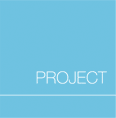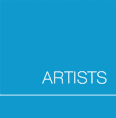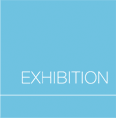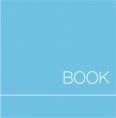|
Cloth & Culture NOW
the artists - Peteris Sidars, Latvia
During the Soviet times a pressure from „the above”-–the
ruling political elite--was being applied dictating artists how
to work. It was stipulated and supported by the Ministry
of Culture and the Foundation of Arts. During this period
the artists had the opportunity to take inspiration from the heritage
of the ethnic art that left its imprint on many forms of art – metal,
wood, leather, glass, and textile art. In a way it was interesting
however, on the other hand – the artwork became exaggerated
and homogenic.
In my early work I used motives from the
region of Southern Kurzeme (Courland). Ethnography, improvizations combining dense colors,
experiments with novel materials and glorious colours – all
of the above has been put into my early tapestries and are related
to the manifestations of my inner self.
During the studies my interest in subjective
deformation of the form and intense mounting of expression by
the application of various materials began to increase. It allowed me to approach the
notion of experimentation. I worked intuitively, without
thinking about the composition and this gave me more boldness to
experiment, permitting me to see the conclusion of my work. There
were and still are some pieces of work that cane be developed futher. I
am happy about the continuation of my work and their further motion. Motion
occupies a major place in my creative life. I have been influenced
by abstract painting, modern sculpture, and installation art.
During the Soviet times we, artists, didn’t have much of
an opportunity to get acquainted with culture outside the boundaries
of the Eastern block countries. We had more opportunity to
have contacts with cultures from the Eastern block and the Soviet
republics. However at all times I took an interest and tried
to obtain information about the artistic life of the countries
around the world through art magazines. During the Soviet
years the only way I could get hold of these magazines was unofficially
through my friends in Moscow and St. Petersburg since they were
prohibited by the Soviet censorship. By examining those magazines,
I draw boldness to seek new materials, to improvize, and, most
importantly, to dare to be creative.
The Perestroika period was the time when
my artistic boldness made me work more intensively and take a
delight in finished work, as „the world belongs to the
brave.”
In my inner self I have never felt like
a typical representative of the Nordic mentality since I consider
myself more as a passionate, vehement, and intense person. As
regards the typical traits of the Latvian mentality, I see in
myself a continuous need to develop, to be constantly engaged
in something and to patiently and ardently work thus discovering
more and more new materials and ways of expression for my art.
During the Soviet times, the Baltics,
including Latvia and Riga, were the pioneers of the Soviet textile
art. Subsequently
Latvia was the place were Soviet sympoziums of art took place that
were attended by the artists from countries friendly to the Soviet
Union as well as artists from the Soviet republics who had an opportunity
to see the work of the Baltic artists giving them pleasant surprise
and stimulus for their creative development.
I have always been interested in a synthesis
of seemingly disparate things, a skill to notice new dimensions
in various mundane materials being it textile, textile fibre,
children’s building blocks,
copper wire, glass fibre, pots of clay or peat, hot glue, lamination
technique et al.
Any of the material we incidentally encounter,
can provide us with an impetus for creativity—currently I am interested
in mixing natural material with new technologies and new materials
of the 21st century. In a way it is a meditation involving
things found in nature and the passion of my imagination – a
mind of an artist where emotions and sensations prevail over mathematical
calculation. What matters to me is the creative process itself,
the cognition, the examination of the micro and macrocosm of the
universe. Emotions, an unfettered flicker of feelings, and
power of imagination encoded in each and every individual is what
matters to me in life but they have to developed, not dulled. This
is a neverending motion, it always envisages opportunity for further
development. Art is my lifestyle and my only true passion.
Resume:
I do not create my works with any embedded messages or manifestations,
they are not created for any philosophical purpose nor they are
meant to be described or translated. My life’s driving-force
is motion and motion is the essence of my work. In my work I
try to make joy and to continue the play started in my imagination.
I consider them more of an experimental nature, that I want to
continue.
LATVIA
|









